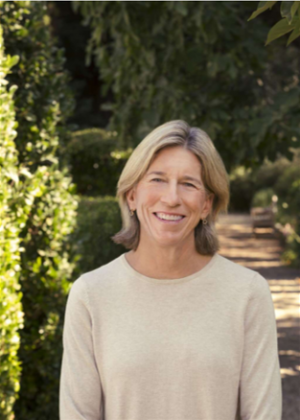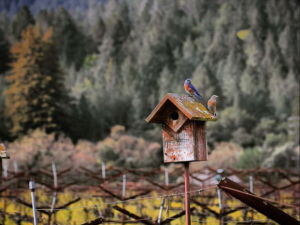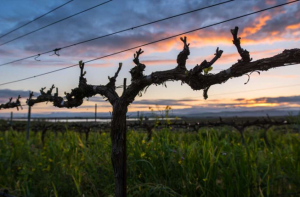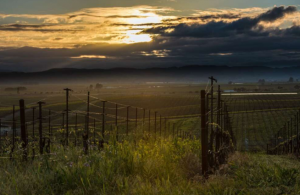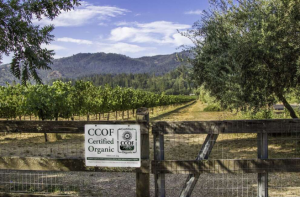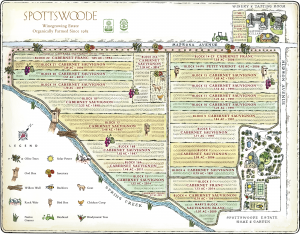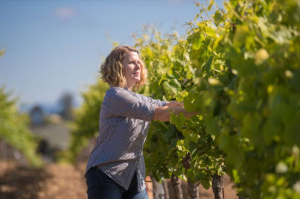Wine Ink: Wine and Earth Day
Two Napa Wineries Celebrate
“Everything we put into the soil goes into the vine. Then it goes into the grape. And then into the wines and yes, then into our bodies, no? The line is direct,” said Jean-François Ott as he precisely explained why the three estates of his family-owned Domaines Ott wines in the Provence and Bandol regions of France are farmed organically.
It may seem obvious, but much of the time we don’t consider that direct connection between the source of our wines and what we ultimately consume. In wine, we may often talk about how soil and terroir affect the taste of our wines but what may be lost is how that soil, the earth itself, is treated by those who make the wines.
There is no better time to reflect on that connection than Earth Day.
A NEW DAY
There was a time, not that long ago, when wineries, especially large industrial ones, were producing bulk wines farmed exclusively for immediate profit. Using chemicals to tame the elements of nature that were unfriendly or cumbersome in wine production was just the way business was done. But there were always outliers, those who understood that the value and the future of wine is predicated on how the vineyards are treated.
In Europe there are many small, family-owned wineries that have long practiced organic and biodynamic farming, caring as much for the earth — the source of their wines and livelihoods — as they did the wines themselves. And while the domestic wine industry may have been slower to adapt, a culture of sustainability has been embraced by many wineries to reflect the need to be cognizant of the entire winery ecosystem.
SPOTTSWOODE’S STEWARDSHIP
“Earth Day is more important than ever,” said Beth Novak Milliken, president and CEO of St. Helena, California-based Spottswoode winery. “When you consider the challenges to the environment, the world has to act. We all have an obligation to lead by example.”
Novak Milliken presides over a winery that is not only recognized as producer of some of the Napa Valley’s finest Cabernet Sauvignon, but has also been an acknowledged leader in environmental awareness for close to four decades now.
“Actually, it was our then-winemaker Tony Soter who first recommended the concept of making our vineyards organic to my mother,” she said of the a-ha moment that has influenced Spottswoode Winery since 1985, when they first began to farm organically. “There hasn’t been a chemical or pesticide used in our vineyards since then,” she says with pride.
While Spottswoode’s focus is on the production of the highest quality Cabernet Sauvignon and Sauvignon Blanc, the mission has also been about creating a business model that is as sustainable for the land as it is for the bottom line. Today the 46-acre property is certified as both organic (California Certified Organic Farmers-CCOF) and biodynamic (Demeter).
“We hope to build resiliency into our vineyards systemically,” Novak Milliken says, “to build a holistic, healthy system that will carry forward to future generations.”
And that mission relies on innovations in both the vineyard and the winery.
“In the vineyard there are bird boxes and insectaries to help create biodiversity. We have four cashmere goats and some pigs that are really more like pets,” she laughed. “The goal is to bring a life force to the vineyard.”
There are also trellising systems and vine spacing decisions that make the vineyards more efficient and less reliant on intervention.
At the winery, the power is supplied almost entirely by solar panels and there is new equipment that reduces the amount of water used in the production process. “Winemaking requires water but we keep a close eye on usage and monitor all of our wells. And we share that information.”
“While I’m not sure that you can taste two wines side by side, one that is organic and one that is not, and pick the organic wine, I do believe it makes a difference in what is in the glass,” Novak Milliken insists. “I can’t even begin to consider not farming and making wines this way.”
“I’m an optimist,” Novak Milliken says about the state of sustainability in the Napa Valley, noting the upcoming Napa Green Vineyard designation that is about to be launched. “Strides are being made; we would love to see more wineries going organic. We want to be an inspiration to others.”
BOUCHAINE’S MISSION
“So much of what we do is about leaving the land in a better place for future generations. We live and breathe grapes and wine — but we also live on this dirt, breathe this air, and drink this water,” said Chris Kajani, winemaker and general manager of Bouchaine Vineyards, on the mission of the Napa, California, winery that she manages.
In 1970 when Earth Day was first launched, the idea of “sustainability” was foreign to most industries, including winemaking. But 51 years later, the word has become a mantra for wine producers.
“Nobody wants to be spraying Roundup or chemicals in their vineyards anymore,” Kajani said. “But there is so much more to sustainability than just not using chemicals. It comes in layers, really — there is water use and erosion control, how you plant cover crops between the vines, how you manage birds or pests.”
Real sustainability reflects a holistic view of how to support the land that supports the winery as well as the land around it.
Bouchaine’s location at the bottom end of the Carneros region of the Napa Valley means that they are the last stop before the San Pablo Bay for all of the water that flows through the valley. “It’s really important that we are concerned with soil erosion, so we don’t put things into the bay that will affect the fish.” To support that effort, Bouchaine became a Fish Friendly Farming-certified vineyard in 2004, a step that confirmed their commitment to the local environment.
There are a whole host of actions that Bouchaine has taken to create a sustainable ecosystem. They have planted cover crops such as beans, clover, oats, barley, peas, vetch and rye between the rows of vines to prevent soil erosion and to add organic matter that sustains the healthy balance. Natural waterways have been improved to allow proper drainage and flow. Raptors are brought into the vineyard to naturally deal with birds and rodents. And pests are managed by using pheromone traps to disrupt the mating rituals of bugs naturally.
“We are dedicated to leaving a gentle imprint, so that this land can be enjoyed for generations,” Kajani said about the programs they implement.
In the world of wine, every day is Earth Day.
Making the commitment to third party certification takes time and effort, but it is worth it to demonstrate our commitment to the community and to protect our watershed, our land and the air we breathe.
- Susan Boswell, Chateau Boswell Winery

